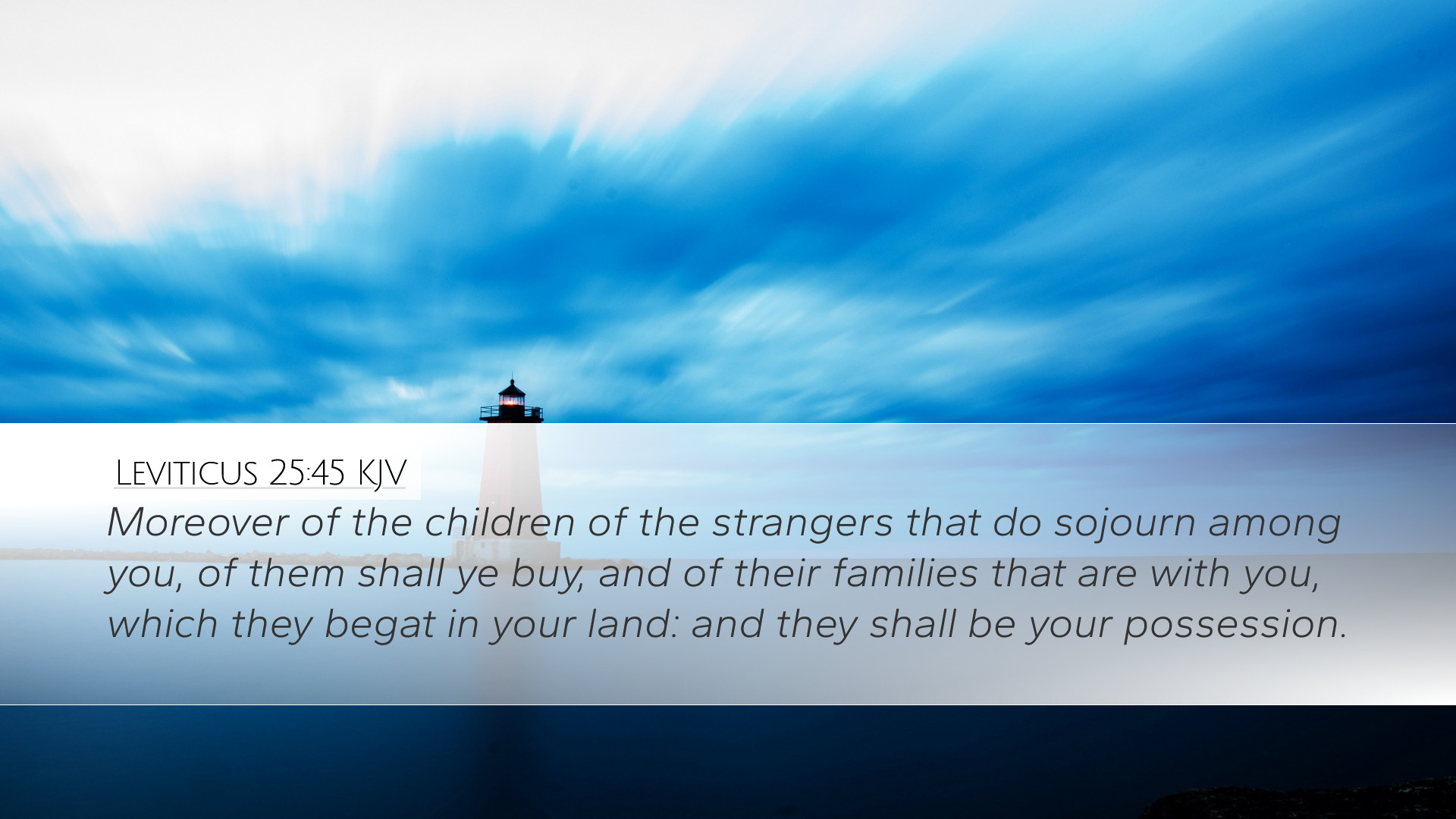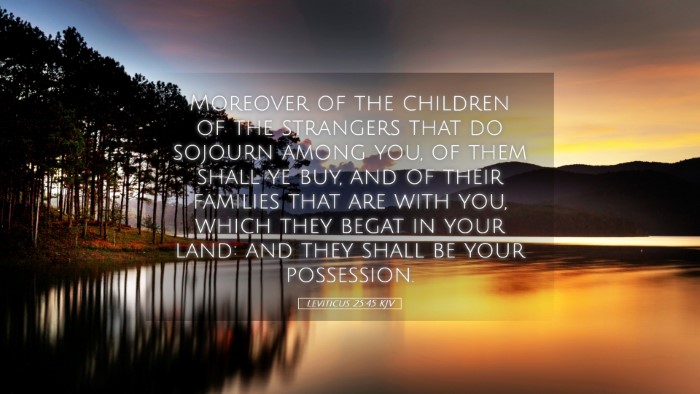Commentary on Leviticus 25:45
Leviticus 25:45 reads: "Moreover, of the children of the strangers that do sojourn among you, of them shall ye buy, and of their families that are with you, which they begat in your land: and they shall be your possession." This verse addresses the treatment of foreign residents within Israel, emphasizing the community’s legal and social responsibilities.
Context and Background
In Leviticus 25, God outlines laws concerning the sabbatical year and the year of Jubilee. The chapter’s themes revolve around rest, redemption, and justice, aiming to establish a society reflecting God’s holiness and righteousness. This particular verse deals with the ownership rights of non-Israelites who reside within the Israelite community.
Insights from Matthew Henry
Matthew Henry highlights the significance of foreign individuals living among the Israelites. He remarks that while these strangers may not possess the same heritage, they are nevertheless integrated into the societal fabric. Henry notes the ethical implications of purchasing such individuals, indicating that they are treated with dignity and respect. The verse reflects God’s concern for the marginalized, which aligns with the broader biblical principle of inclusivity.
Insights from Albert Barnes
Albert Barnes emphasizes the practical and social dimensions underlying this legislation. He explains that the Israelites are permitted to purchase labor from foreign residents, which signifies economic integration but also sets boundaries for exploitation. Barnes notes that the laws depict a transition from servitude based on ethnicity to a more regulated economic interaction. He draws attention to the importance of ensuring fair treatment and advocates for the humane treatment of those who might otherwise be marginalized.
Insights from Adam Clarke
Adam Clarke delves deeper into the interpretation of "possession." He asserts that although non-Israelites could be bought as servants, the Hebrew term used encompasses a broader meaning that includes rights and responsibilities. Clarke points out that this openness towards foreigners contrasts with contemporary practices of isolation and discrimination. He posits that the inclusion serves to demonstrate God's redemptive plan, which extends beyond Israel to embrace all humanity.
Theological Significance
The verse serves as a reminder of God's overarching mission to reconcile all nations to Himself. Through these social and legal structures, Leviticus 25:45 underscores the principles of justice, mercy, and community. By allowing for the integration of foreigners, the Israelites were to reflect God's inclusive love, setting a precedent for future generations.
Practical Applications
- Cultural Sensitivity: The church today is called to embrace diversity and promote inclusivity.
- Social Justice: This text challenges believers to advocate for the rights and dignities of all people, especially those often overlooked.
- Community Engagement: Encourages the formation of relationships across cultural lines, reflecting a holistic community of faith.
Conclusion
Leviticus 25:45 invites a broader contemplation of corporate ethics and individual responsibilities within diverse communities. In today's global context, this scripture resonates with the call for mutual respect, equitable treatment, and the acknowledgment of shared humanity. By exploring this verse through the insights of Matthew Henry, Albert Barnes, and Adam Clarke, we uncover a robust text that speaks to contemporary issues, urging believers to embody the love of Christ within every societal layer.


